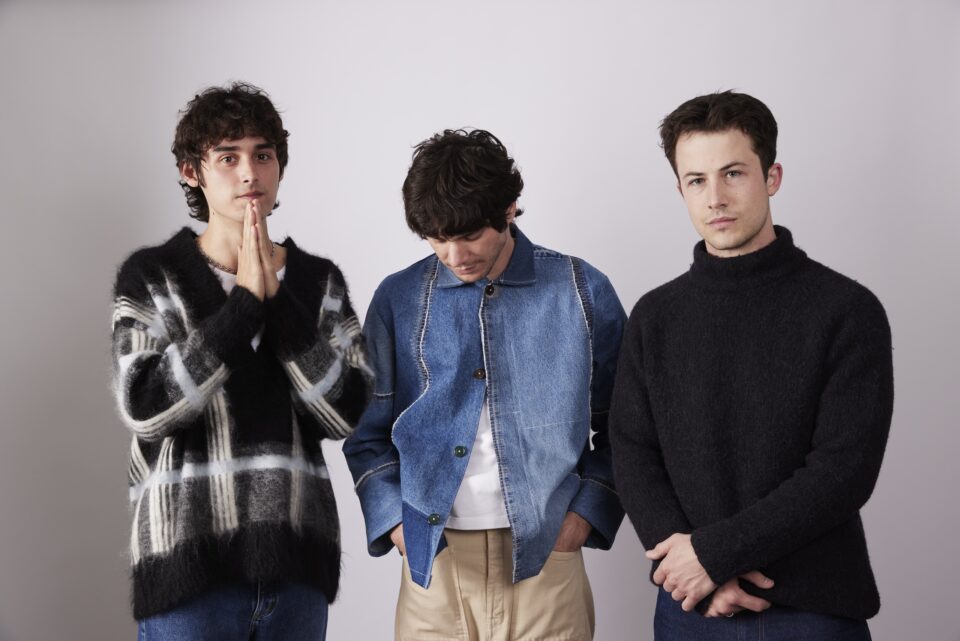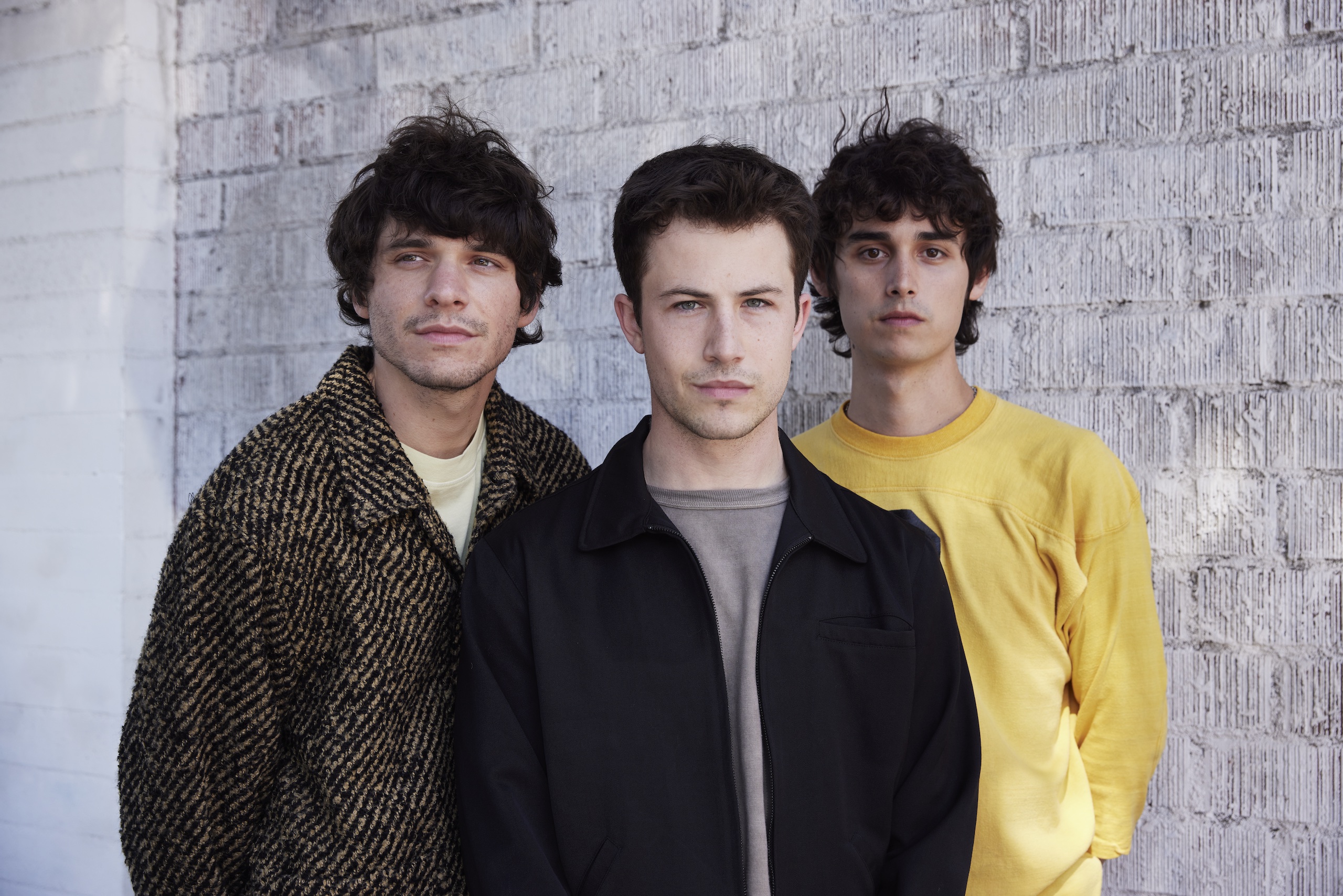Sophomore albums are always a prickly proposition. Do you return to the same creative well as your debut, or broaden your horizons? Wallows opted for the latter approach on Tell Me That It’s Over. The trio comprised of Dylan Minnette, Braeden Lemasters, and Cole Preston uses the hazy, nostalgic indie-rock sound of 2019’s Nothing Happens as a starting point and then, under the guidance of super-producer Ariel Rechtshaid, dabble in everything from ’80-inspired electronica to orchestral grunge. “There’s definitely still a lot there for our current fans, but also some new sounds,” Preston says of Tell Me That It’s Over. “We're trying to change it up early so that people don't really know what to expect from us.”
The band’s sonic evolution is at least partly a byproduct of the pandemic. “If COVID hadn't happened, we would have jumped right into a second album,” Minnette adds. “And I think it would have sounded a lot more like ‘OK’ and ‘Nobody Gets Me,’ which were in the conversation for our second album.” Instead, Wallows rolled out those raucous tracks as part of 2020’s Remote EP. “I'm really happy we did Remote,” Minnette continues. “It allowed us to get some stuff out of our system and then go into [Tell Me That It’s Over] with an open mind and ultimately create what we did, rather than allowing those sophomore album nerves to sink in.” The trio’s approach to that second full-length was elastic and easygoing—an outlook encouraged by Rechtshaid.
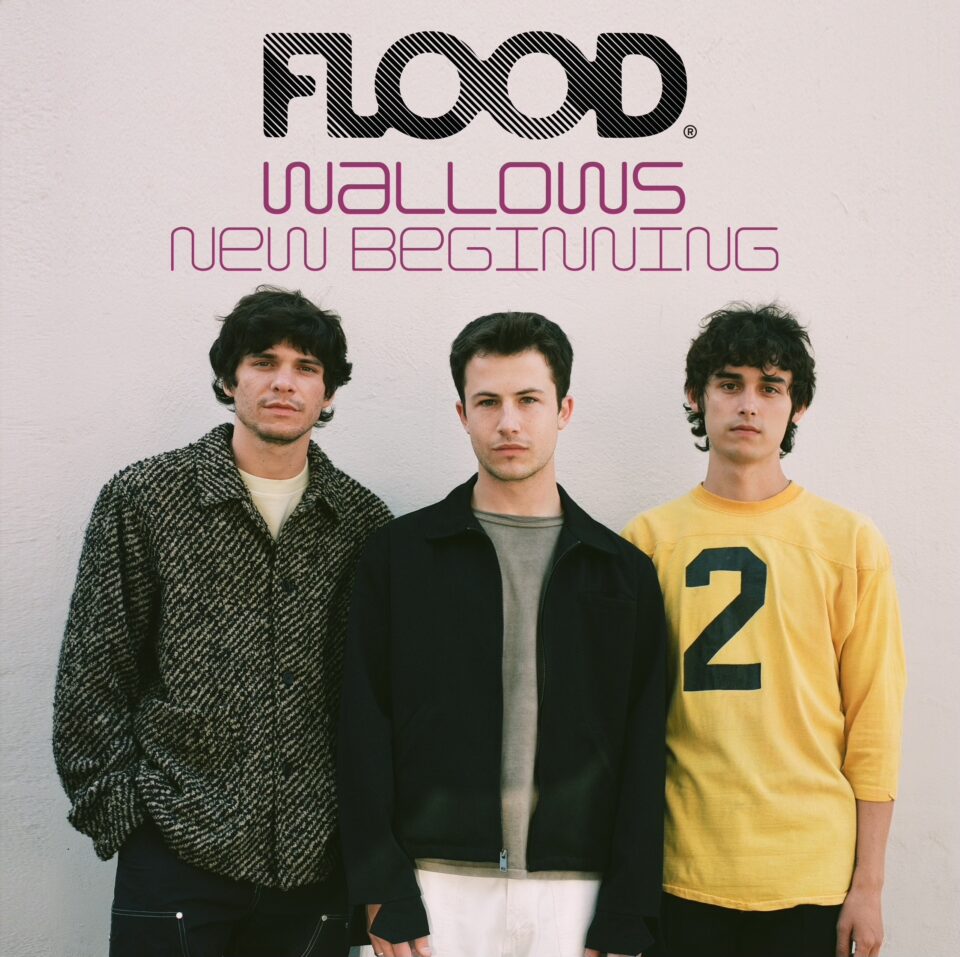
With Nothing Happens, the band brought a selection of finished songs—and a clear direction—to producer John Congleton. “We knew what the arrangement was going to be pretty much 100 percent of the time,” Lemasters reveals. After all, the songs had been gestating for years: “A lot of them were written when we were 18 or 19.” From there, Congleton helped the band bring the songs to life in the way that they envisioned.
Wallows initially tried to repeat that process, but soon took a hard left. “We went in there with the songs and a basic arrangement,” Lemasters continues. “But then Ariel would just flip them on their heads, more than John did—and not in a way that's better, just in a way that was different.” As such, the tracks underwent a profound transformation in the studio. “We were just down to roll with whatever happened. Sonically, we were open to experimenting and broadening our horizons in terms of not being committed to the arrangement or how it was written, and then we just let it happen.” He’s quick to point out that the process was largely organic. “There was nothing too crazy. Ariel had his input and then we just rolled with it.”
By letting go of the reins, Wallows found their authentic sound. “In broadening our horizons, like Braeden said, and exploring new directions, I feel like we ultimately landed on something that feels more Wallows than ever,” Minnette muses. “I feel like we found ourselves a little more.” He’s quick to clarify that the core Wallows sound remains intact. “There’s a lot of the album, sonically and creatively, that sounds like older Wallows.”
The band’s newfound laxity also extends to the lyrics. While Tell Me That It’s Over is largely concerned with matters of the heart, there’s not an overarching narrative, per se. “I don’t see a common link between all of the songs,” Minnette says. “We were intentionally trying to make this album a little less intentional. This time around, it was more about making good songs that flow together, and not really focusing on the narrative of the album.” Perhaps unavoidably, a loose theme emerged regardless. “Ultimately it's still all about romantic relationships,” Minnette laughs.
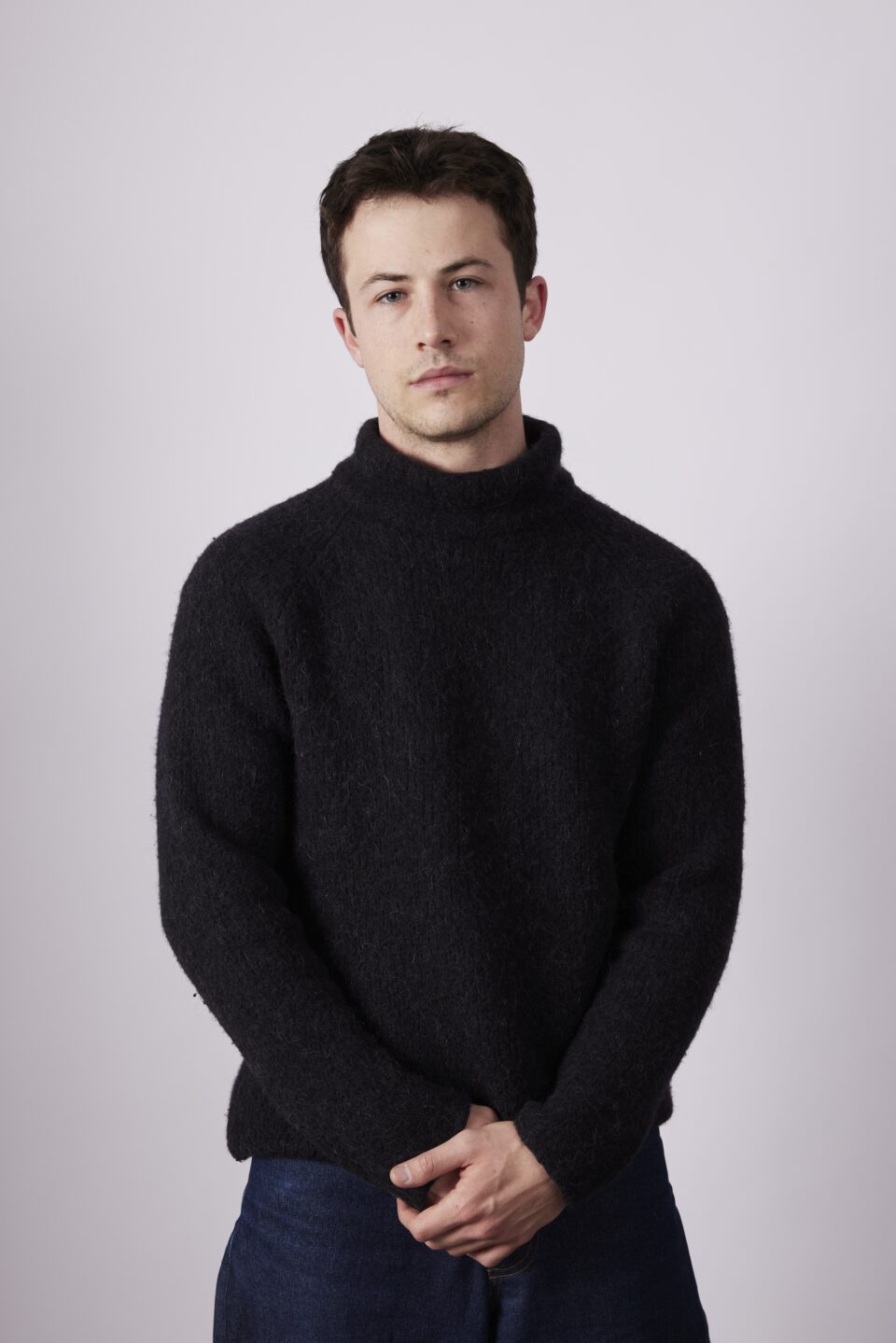
“In broadening our horizons and exploring new directions, I feel like we ultimately landed on something that feels more Wallows than ever.”
— Dylan Minnette
Tell Me That It’s Over also serves as a thematic sequel to Nothing Happens in that it documents the pressures and passions that consume twentysomethings. “In many ways, it’s a continuation of Nothing Happens,” Minnette admits. “That album was about loss of innocence and entering adulthood. With this album, you're an adult—relationship quandaries still exist, but they're intensified and enhanced because at this point in your life, every decision you make feels like it could be a life-long decision. And it feels really important and there's more pressure on it in that way.”
The record’s unintentional cohesion is perhaps a result of working with one producer instead of several. “Lyrically, there isn't an obvious narrative,” Preston explains. “But because we chose to do the whole album with one producer, that becomes a secondary throughline where every song is connected.” Even, that is, while the band is experimenting with different genres. “This album is sonically pretty all over the place, but everything is pretty tapey and hissy, and the drum sounds are all kind of existing in the same world. So it all is tied together by the sound of it.”
“Lyrically, there isn't an obvious narrative. But because we chose to do the whole album with one producer, that becomes a secondary throughline where every song is connected.”
—Cole Preston

After recording songs remotely due to the pandemic for the pragmatically titled Remote, Wallows wanted to swing in the opposite direction for Tell Me That It’s Over. “Coming out of that, we were inspired to make this record feel more organic,” Minnette says. “We wanted to do the polar opposite approach from what we did for Remote, just because we worked on that for so many months, totally alone. It’s cool that we’re a band, and that's what we wanted to highlight. Now we’re back in a room together again, that changes the dynamic. And we felt like we had more freedom because we put out so much music after our last album.”
Instead of rushing into the project, they reconnected as a band and leaned into that group mentality—even if it meant occasionally recording demos separately due to Minnette’s filming schedule. One example of the band’s ability to act separately and then combine seamlessly is album highlight “At the End of the Day,” which Lemasters and Preston demoed as a duo. “It was inspired by ‘Harvest Moon’ by Neil Young and ‘Everybody Wants to Rule the World’’ by Tears for Fears,” Lemasters reveals. “It's funny, we totally forgot about that song. We never sent it to Dylan.” The multi-talented Minnette, who was filming the Scream reboot at the time, happened upon the song later and knew it had to be on the album.

“We were going through the album demos and Dylan was like, ‘What? Why have you never sent this? I love this, we've got to record it,’” Lemasters laughs. “And we were like, ‘Really?’ Because sometimes you just forget about things when you're always writing.” Despite breaking new sonic ground with its slippery synths and retro influences, “At the End of the Day” has emerged as a fan favorite. “When I play the record for people, that seems to be the song a lot of people like the most.”
Similarly left field is “Hurts Me,” which continues Wallows’ ’80s synth experiment. “Part of the reason for that is Ariel having a LinnDrum in his studio,” Preston says of the drum machine favored by artists like Prince and New Order. It turns out the song made quite the transition. “I wish that we could show you the original demo. It was really dreamy with Braeden singing the highest falsetto.”

“We grew up with all those kinds of bands—The Strokes, Arctic Monkeys, all that stuff. But I feel like maybe the young kids never really heard those songs. Maybe it's just so unique that it was like this cool little discovery."
—Braeden Lemasters
Between shoots, Dylan would work on new music for Wallows. “Especially You,” with incisive anecdotes about the early stages of a relationship, is one of the most intriguing. “The demo was more [The] 1975,” Minnette remembers. “But then Ariel really took it to a more funky place, which we were down for.” He’s particularly proud of the banjo-heavy, saloon-sounding parts. “I feel like it's something that Beck or Gorillaz would do. They're not afraid of making sounds that people can find hokey, which ultimately makes some really cool.”
Minnette’s most personal contribution, however, is album-closer “Guitar Romantic Search Adventure,” which is surprisingly literal. “It’s an inside thing between my girlfriend and I,” Minnette begins. “It directly references the Exploding Hearts album from 2003 called Guitar Romantic. It's the first album she introduced me to.” As such, the song is about communicating in a relationship and getting to know each other. The title comes from the couple’s search for the vinyl, which is out of print and incredibly rare. “We want to find it someday,” Minnette says. “It's a funny sort of title—these four words shouldn’t be in a sentence together, but it makes sense to me. If people read this and know what I'm talking about, then they'll know.”

While Wallows have leaned into their quirks and idiosyncrasies, their music has—by pure coincidence—inched closer to the mainstream. With songs like Surf Curse’s “Freaks” and The Rare Occasions’ “Notion” blowing up on TikTok, indie-rock is enjoying a resurgence. “We grew up with all those kinds of bands—The Strokes, Arctic Monkeys, all that stuff,” Lemasters reasons as to the trend. “But I feel like maybe the young kids never really heard those songs. Maybe it's just so unique that it was like this cool little discovery. Everything on the radio is super pop or rap, which is great obviously, but there’s more to discover. I also think it's really cool that young artists like Olivia Rodrigo and Billie Eilish are incorporating that in their music, because they seem to love rock music.” He was particularly impressed by Rodrigo’s “Brutal.” “I remember when I first heard it, I was like, ‘This is so sick.’ I think everything works in cycles.”
"TikTok completely changed our 2020. It changed where we are right now, just because ‘Are You Bored Yet’ had a little thing on TikTok and I'm so thankful for it. I'm starting to get a little weary of it, too...”
—Dylan Minnette
While Minnette is equally upbeat about the indie-rock revival, he’s also cautious. “I'm sure a lot of watered down bad stuff is going to come out of it,” he says. “Either way, I like that certain artists are changing what is the norm of popular music right now.” He also points to the importance of TikTok. “It really changed the music industry in a lot of exciting ways,” he says. “Like allowing these kids to fall in love with songs like ‘Freaks.’ TikTok completely changed our 2020. It changed where we are right now, just because ‘Are You Bored Yet’ had a little thing on TikTok and I'm so thankful for it.”
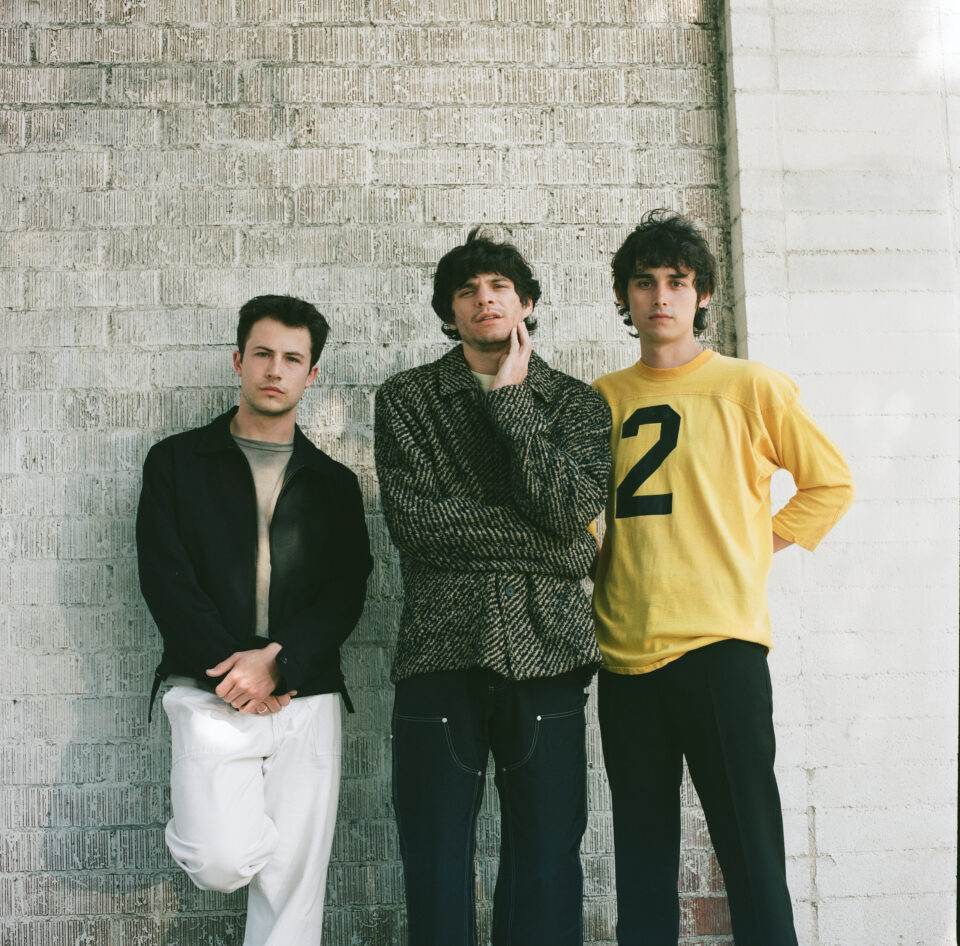
However, there is a downside. “I'm starting to get a little weary of it, too, because as cool as it is that TikTok is allowing all these people to discover fresher artists and newer sounds, I feel like people are chasing that 10 to 15 seconds sound-bite that's going to be the hook that changes everything. It's crazy that we've gotten to a point where we're diluting the importance of a song to 10 seconds or 15 seconds. We’re just not going to allow that to influence our music. Things are going to happen if they happen, and we're just going to keep doing what we do. And if stuff of ours gets picked up on TikTok, that's fucking awesome.”
Preston also sees TikTok as changing the popular music landscape. “I've said for a long time that the people in the driver's seat of big cultural change are teenagers. Songs from 2010 are suddenly really cool,” he laughs. “And it is opening doors, it opened the door for us. And so, love it or hate it, it's doing a lot for a lot of people, so that's great.” With the accomplished sound of Tell Me That It’s Over, Wallows is set to be at the forefront of indie rock with or without a TikTok-fueled revival. FL
